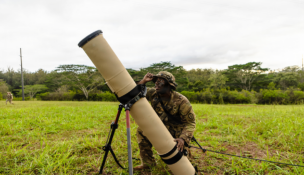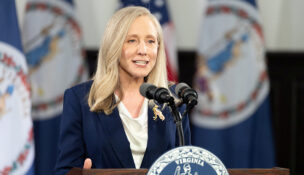Virginia’s future retail marijuana market likely depends on gubernatorial election
Earle-Sears, Spanberger split on weed

AdobeStock

AdobeStock
Virginia’s future retail marijuana market likely depends on gubernatorial election
Earle-Sears, Spanberger split on weed
SUMMARY:
- Gov. Youngkin vetoes marijuana retail legislation for second time
- Retail cannabis policy hinges on outcome of upcoming governor’s race
- Proposed tax structure could generate $74M in five years
- Public support for retail marijuana in Virginia reaches 57%
RICHMOND, Va. — Gov. Glenn Youngkin vetoed legislation to legalize retail marijuana for the second year in a row, reaffirming his opposition as the state heads into a pivotal election season.
“Anybody who thinks I’m gonna sign that legislation must be smoking something,” Youngkin said in 2024.
General Assembly lawmakers in both chambers have attempted unsuccessfully to create the retail market since 2021. Different measures have been delayed, blocked or vetoed.
As Youngkin nears the end of his term, Virginia voters will have the opportunity to decide the direction of marijuana policy in the state. The outcome of this year’s gubernatorial race, between Republican Lt. Gov. Winsome Earle-Sears and Democratic former Rep. Abigail Spanberger, could determine if marijuana retail sales are implemented.
JM Pedini, executive director of the Virginia chapter of the National Organization for the Reform of Marijuana Laws, or NORML, worked with lawmakers to help move the bills through the General Assembly.
Pedini pointed out the stakes of electing a governor who would sign an adult-use retail measure into law. Essentially, any bill could continue to get vetoed and the next gubernatorial election would be four years away.
“Then the next opportunity to enact such a measure will not be until 2030,” Pedini said.
Earle-Sears echoed Youngkin’s views on recreational marijuana sales when he campaigned in 2021 saying “there’s no hope in that.” She said marijuana is a gateway drug, and also that she had fired a previous employee for their use of it.
Spanberger, meanwhile, has voiced support for a regulated retail market.
“We also need to make sure that [tax] revenues flow into Virginia and are used to strengthen our communities and public schools,” Spanberger told RVA Mag. “We need a formalized, legal, emerging cannabis market.”
Neither Earle-Sears nor Spanberger responded to two email requests for an interview about marijuana policy and financial impact.
The proposed bill placed a 1.125% sales tax and a 8% excise tax on any retail marijuana, marijuana-related products and paraphernalia sold. The bill would have also allowed localities the option to add up to a 2.5% excise tax.
The tax structure would have generated around $1.5 million in revenue in fiscal year 2026, but would have grown to $74 million over five years, according to the state fiscal impact statement.
Del. Paul Krizek, D-Fairfax, who sponsored House Bill 2485 is running for reelection and has said he plans to reintroduce the bill if Democrats regain power in the House. His counterpart in the Senate, Sen. Aaron Rouse, D-Virginia Beach, carried the companion bill. Rouse is 1 of 6 candidates vying for lieutenant governor in the Democratic primary.
Despite the failure of multiple attempts to pass legislation, public opinion may be shifting. A Wason Center poll found last year that 57% of Virginia likely voters support the retail sale of marijuana.
Political expert Stephen Farnsworth, a professor of political science at the University of Mary Washington and the director of its Center for Leadership and Media Studies, is skeptical that cannabis policy alone will drive voter turnout. However, he predicts Democrats will retain their majority in the House.
“Normally, angry voters decide elections in Virginia,” Farnsworth said. “And the people who are usually the angriest the year after a presidential election are the people whose party lost the White House.”
In his recent veto message, Youngkin cited concerns about the illicit market, harm to children and potential increases in crime and psychiatric disorders.
“Attempting to rectify the error of decriminalizing marijuana by establishing a safe and regulated marketplace is an unachievable goal,” Youngkin wrote. “The more prudent approach would be to revisit the issue of discrepancies in enforcement.
Krizek disagreed and said limiting a retail market allows criminals to benefit.
“The Governor doesn’t get it. We’ve worked hard to craft sensible, effective legislation,” Krizek wrote in an email. “They know it’s wrong to allow criminals to reap hundreds of millions of dollars while pushing dangerous unregulated products.”
With all House of Delegate seats on the ballot in addition to the governor’s race, the November election could be pivotal for marijuana policy and more. This year’s contest is also historic because both major-party front runners for governor are female.
Capital News Service is a program of Virginia Commonwealth University’s Robertson School of Media and Culture.
e

















